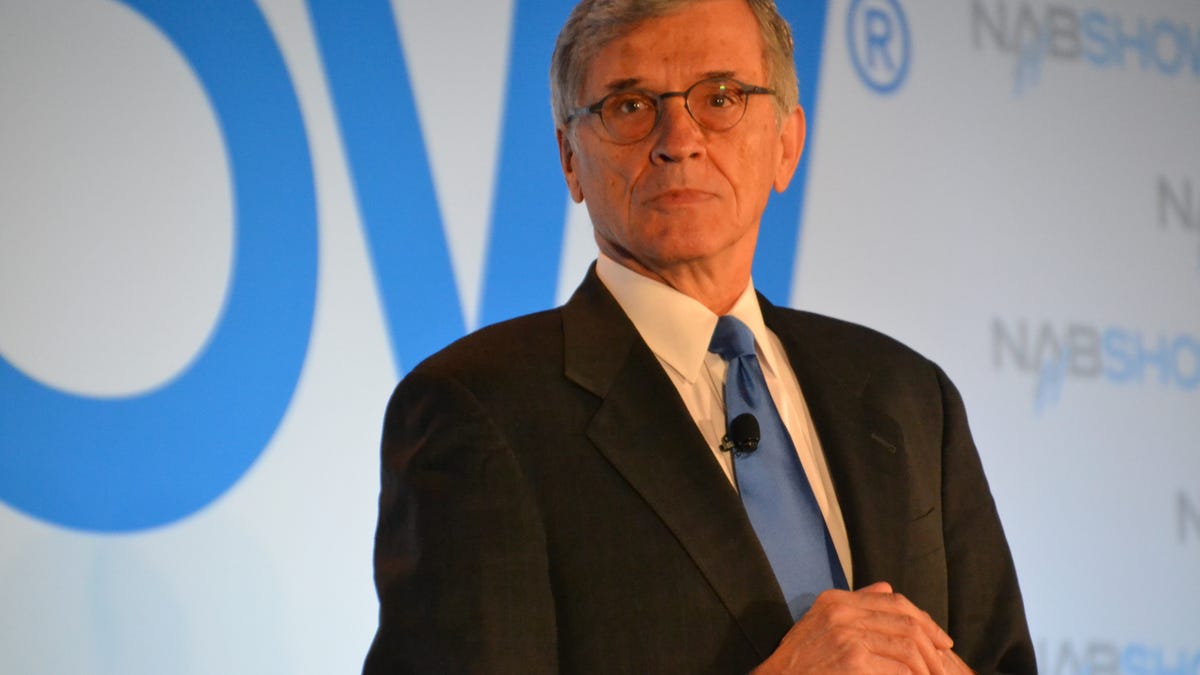Lame duck FCC chairman cancels controversial vote
A week after Republican Donald Trump's surprise presidential victory, the Democrat-led FCC is backing off of key issues.

FCC Chairman Tom Wheeler had an aggressive agenda to push through several reforms. But after the election of Republican Donald Trump as president, he's scaling back efforts.
Federal Communications Commission Chairman Tom Wheeler is cutting short his to-do list amid pushback from Congressional Republicans after Donald Trump's election as president.
The FCC announced Wednesday that it has deleted an item it planned to vote on at its meeting on Thursday that would have reformed the $45 billion market for business data services. The FCC is also expected to abandon another controversial Wheeler plan to overhaul the pay-TV set-top box market, said sources close to the commission.
Scrapping the vote on the business data service reform is a big win for AT&T, which sells internet connectivity to businesses and opposed the measure. Wheeler first put forth his reform plan for the so-called "special access" lines in April, and the measure was revised in October.
The reforms would have capped fees paid to big telecom providers. "Special access" is data service that lets businesses transfer large amounts of data over dedicated internet connections. For instance, banks use these services to connect ATM machines, and retailers use them to transfer data for credit card transactions. Wireless operators also buy special access services to back-haul traffic from cell towers to the wired phone and internet networks.
Republicans in Congress sent letters to the FCC this week advising the agency not to move forward with any controversial votes during the transition. Republicans will take control of the commission when President-elect Trump takes office in January, and it's customary for agencies to refrain from votes on controversial issues before the next administration takes over.
Sen. John Thune (R-S.D.), chairman of the Senate Commerce Committee, cautioned that any action taken by the FCC between now and January 20, when Trump is inaugurated, will "receive particular scrutiny." Reps. Fred Upton (R-Mich.) and Greg Walden (R-Ore.), leaders of the House Commerce Committee and Subcommittee on Communications and Technology, respectively, sent a similar letter to the FCC, strongly urging the agency "to concentrate the commission's attention and resources" on completing the wireless broadband incentive spectrum auction.
A spokeswoman for the FCC confirmed that the agency had deleted items from Thursday's agenda as a result of the letters it received.
The set-top box proposal, which would have required pay TV providers to offer apps that could be used instead of a set-top box for access to their services, is also likely to be scrapped from consideration. This is a victory for cable operators, like Comcast, which opposed the measure.
Wheeler pushed the set-top box reform to offer more choice to consumers, who he said were forced to rent set-top boxes from TV providers. President Barack Obama endorsed the effort when it was first introduced in April, but it had met heavy resistance and the FCC revised its proposal in September. The issue was supposed to be voted on at the FCC's September meeting but was deleted at the last minute. FCC officials said at the time that details of the plan were still being worked out among commissioners.
Consumer advocacy groups that had pushed for special access and other reforms expressed disappointment and said consumers will be the ones to suffer from the delay on these issues.
"These problems do not simply go away due to an administration change," said Harold Feld, senior vice president at Public Knowledge. "When Republicans take over, they will need to address the same competitive problems, or explain to the American people why they plan to perpetuate our broadband duopoly."

